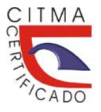Practical quantitative method for the determination of microbial groups in the soil
Keywords:
Agroecology, Beneficial indigenous microorganisms, Natural enemies, Pests, Soil microbiologyAbstract
In agroecological agriculture, the recognition of the types of microorganisms, beneficial or harmful, that prevail in a soil, constitutes a fundamental tool to decide the application of agroecological amendments that manage to balance the system; however, laboratory techniques are either too expensive or not affordable for most low-income farmers. The present work, using data collected from a real field situation, develops a mathematical algorithm that allows to determine, in a quantitative way, the dominance in the soil of the microbial groups, according to their coloration, allowing to increase the size of samples collected through the Method capture with the use of traps, with a minimum of time and intellectual effort.
Downloads
References
ABHISHEK, T. S. y DWIVEDI, S.A. (2021). Review on integrated pest management of coconut crop. International Journal of Entomology Research. Vol. 6, pp. 115-120.
ALTIERI, M. A. y TOLEDO, V. M. (2011). The agroecological revolution in Latin America: Rescuing nature, ensuring food sovereignty and empowering peasants. Journal of Peasant Studies, No. 38, pp. 587–612. Disponible en: DOI:10.1080/03066150.2011.582947.
ALTIERI, M.A. y NICHOLLS, Clara I. (2017). Agroecology: a brief account of its origins and currents of thought in Latin America. Agroecology and Sustainable Food Systems, Vol. 41, No. 3-4, pp. 231-237, DOI: 10.1080/21683565.2017.1287147.
BIOVERSITY INTERNATIONAL (2017). Mainstreaming Agrobiodiversity in Sustainable Food Systems: Scientic Foundations for an Agrobiodiversity Index. Bioversity International, Rome, Italy.
DELONGE, M. y BASCHE, A. (2017). Leveraging agroecology for solutions in food, energy, and water. Elem Sci Anth, No. 5, pp. 6. Disponible en: DOI: https://doi.org/10.1525/elementa.211. Visitado: 21 de abril de 2022.
HATHAWAY, Mark (2015). Agroecology and permaculture: Addressing key ecological problems by rethinking and redesigning agricultural systems. Journal of Environmental Studies and Sciences. Disponible en: DOI: 10.1007/s13412-015-0254-8. Visitado: 21 de abril de 2022.
HEIT, Sophie (2015). Identification de Fusarium et détection des mycotoxines associées par MALDI-TOF. These le Diplôme d'Etat de Docteur en Pharmacie. Faculte de Pharmacie, Universite de Lorraine. 117 p.
HENAO, A., ALTIERI, M.A. y NICHOLLS, Clara I. (2015). Herramienta didáctica para la planificación de fincas resilientes. Primera edición. Medellín, Colombia: Ed. Sociedad Científica Latinoamericana de Agroecología (SOCLA) y la Red IberoAmericana para el Desarrollo de Sistemas Agrícolas Resilientes al Cambio Climático (REDAGRES). 61 p.
INFOP (Instituto Nacional de Formación Profesional) (2011). Trampa para microorganismos y análisis de suelos. (Audiovisual). Unidad Audiovideo, INFOP. Tegucigalpa D.C., Honduras C.A. Disponible en: https://www.youtube.com/watch?v=WcXEH_mIYSE. Visitado: 10 de marzo de 2021.
NICHOLLS, Clara, ALTIERI, M.A. y VAZQUEZ, L. (2016). Agroecology: Principles for the Conversion and Redesign of Farming Systems. J Ecosys Ecograph. S5: 010. doi:10.4172/2157-7625.S5-010.
PHILIPPOT, L. … [et al.] (2013). Going back to the roots: the microbial ecology of the rhizosphere. Nat. Rev. Microbiol. No. 11, pp. 789-799.
RATNADASS, A. … [et al.] (2012). Plant species diversity for sustainable management of crop pests and diseases in agroecosystems: a review. Agron. Sustain. Dev. No. 32, pp. 273–303. Disponible en: DOI 10.1007/s13593-011-0022-4. Visitado: 10 de marzo de 2022.
REEVE, Jennifer R. … [et al.] (2016). Organic Farming, Soil Health, and Food Quality: Considering Possible Links. In: Donald L Sparks, editors. Advances in Agronomy. Vol 137, Chennai: Academic Press, pp. 319-368.
TREDWAY, L.P. y BURPEE, L.L. (2001). Rhizoctonia diseases of turfgrass. The Plant Health Instructor. Disponible en: DOI: 10.1094/PHI-I-2001-1109-01. Visitado: 10 de marzo de 2022.
Agradecimientos: este trabajo se realizó en el marco del Proyecto FSPI Agrecocaribe, financiado por la Embajada de Francia en Cuba. Se agradece a todas las personas, que, de una forma u otra, apoyaron la investigación.
Downloads
Published
Versions
- 2024-03-07 (2)
- 2023-05-25 (1)
How to Cite
Issue
Section
License
Copyright (c) 2023 Universidad & ciencia

This work is licensed under a Creative Commons Attribution-NonCommercial-ShareAlike 4.0 International License.





















